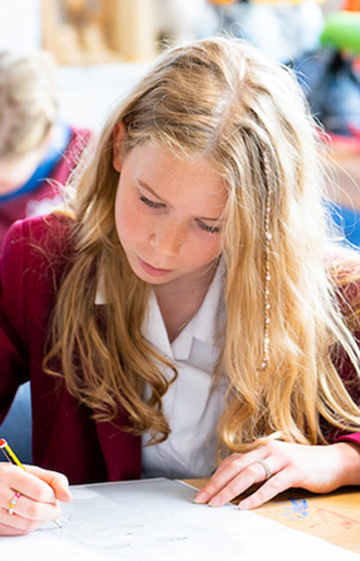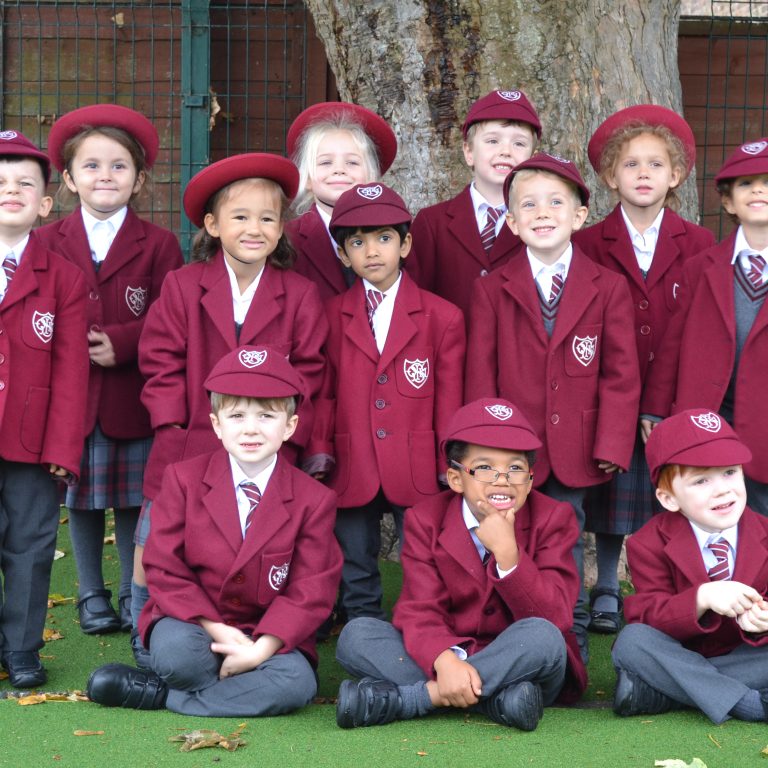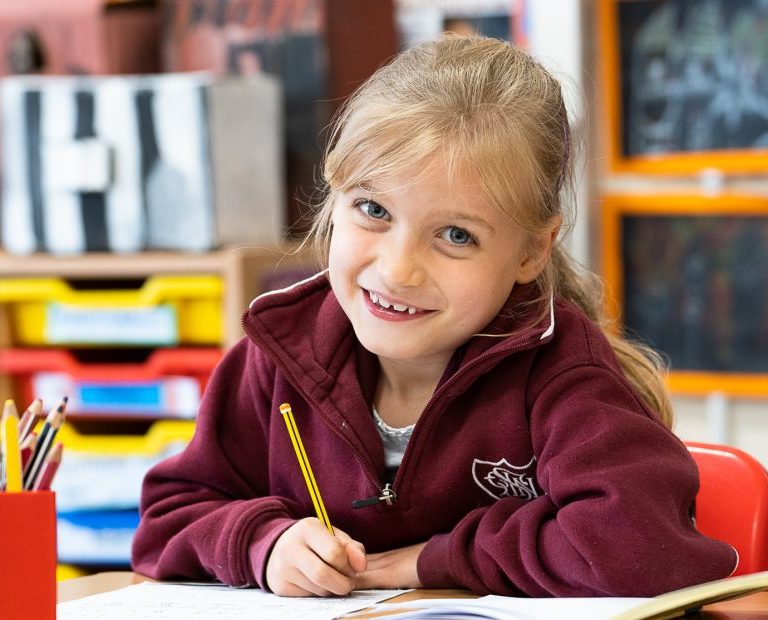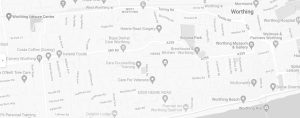Learning in a ‘Home-from-Home’ Environment
Children usually join the Reception Class, full-time in the September after their fourth birthday. This means they’ll turn 5 in their first school year. Our Reception Class is physically situated within our small and nurturing Nursery environment. This enables children to develop into thriving and autonomous learners and gives them the opportunity to build the confidence that they need to move into the larger Junior School building for Year 1.
The Reception Class benefits from sharing areas with our Early Years class but also has guided access to whole school facilities. The all-weather outdoor classroom offers fantastic opportunities for children to work as a team – manage risks, develop social and communication skills, problem solving and independence – all vital life skills.
For our Reception Class, the learning environment also extends beyond the school gate, making the most of both our town centre location and proximity to the beach for Wild Curriculum experiences.
Family life is important to us. The school family is one part of a child’s life but, we believe, partnering with parents to educate children is the key to bigger success.
What to Expect
- Personalised learning journeys
- Specialist teachers for Languages, PE and Music
- Wild Curriculum, including Beach School and local trips
- Daily reading and phonics sessions
- Cursive writing introduced
- Daily Maths learning including practical investigations and use of manipulatives (eg Numicon)
- Opportunities to perform in productions and assemblies
- Community outreach including Inter-generational Project
Our School Day
| 8.30am | When the children arrive each morning, we start with an activity like ‘Clever Hands’ that works on the children’s fine motor skills. They may be hammering in nails, using pegs or elastic bands to make pictures, using tweezers to pick objects up. |
| 8.50am | We take the register and then start our day with a wake up and shake up song to wake up our bodies. We also listen to the days of the week song, months of the year song or an alphabet song. |
| 9.10am | Phonics Lesson – We explore phonics through interactive games, songs and writing. |
| 9.30am | Learning through play with phonics. Activities are set out in our tuff trays relating to the sounds we have just been practising. |
| 10.10am | Morning Snack time – Children are asked to sit around the table for snack time. |
| 10.20am | Break time |
| 10.40am | English – Learning through play with games and explorations relating to speaking, listening, reading and writing. |
| 11.20am | Maths – Exploration of the tuff tray, and games relating to counting, and learning what happens when we put numbers together, or take them away. |
| 12.00pm | Lunchtime & Break |
| 1.00pm | Everybody Reads in Class (E.R.I.C Time) |
| 1.30pm | The World around us |
| 2.00pm | Afternoon Snack time |
| 2.15pm | Break time |
| 2.30pm | Expressive arts & design – the children get involved in creative activities such as colouring, cutting and sticking, modelling or painting, etc. Creativity goes hand in hand with imagination, but also aids self expression, helps to improve fine motor skills, patience, concentration and organisation skills (amongst many more things). |
| 3.00pm | Show & Tell and story time |
| 3.30pm | Tidy up and home time – Not only is tidying a good routine to get into because it teaches responsibility and co-operation from an early age, but it also helps children to mentally transition between one activity and the next. At the end of a lovely day, it’s time for children to collect their things, say goodbye and head home to be with their families. |
The day begins at 8.30am and ends at 3.30pm, in line with our Junior School timings.
Before the school day, children may arrive at 8am for Morning Club. At the end of the day, there is a range of after school clubs or children can remain in our Afternoon Club until 5pm.
The Curriculum
Whilst our curriculum is based upon the Early Years Framework (EYFS), as an independent school we seek every opportunity to add value and enrich the children’s learning with exciting opportunities that may not be otherwise available.
The Early Years Framework focuses on seven areas of learning.
- Communication and Language
- Personal, Social and Emotional Development
- Physical Development
- Expressive Arts and Design
- Understanding of the World
- Mathematical Development
- Literacy
We relish the opportunity for the children to be immersed in everything that our local surroundings have to offer. Enrichment opportunities include:
- Regular Wild Curriculum trips
- Discovery days at Worthing Library
- Worthing Market visits
- Inter-generational Project with St Mary’s Care Home
- Trips to Worthing Museum
- Visits to local parks and shops
- Trips to Chichester Planetarium
We also like to invite visitors in to Nursery to make learning more relevant to everyday life.
- Sussex Police
- West Sussex Fire and Rescue
- Vets
- Dentists
- Doctors and nurses
- Pilots
- Animal Handlers
How Children Learn
We know our children as the individuals they are and, perhaps more importantly, they know that they are known. As professionals, this helps the teaching team understand how they learn and how to create an environment for them with learning opportunities to ensure that children reach their individual potential.
Our environment enables children to initiate their own learning in partnership with our Early Years teaching team. Our aim is to give every child the individual support and the space needed to be active learners, who can create, think critically, play and explore.
Our detailed observations of the children enable us to reflect on how we can expand their learning and this is demonstrated in the bespoke learning journals which are live and developed in partnership with parents (Tapestry).




